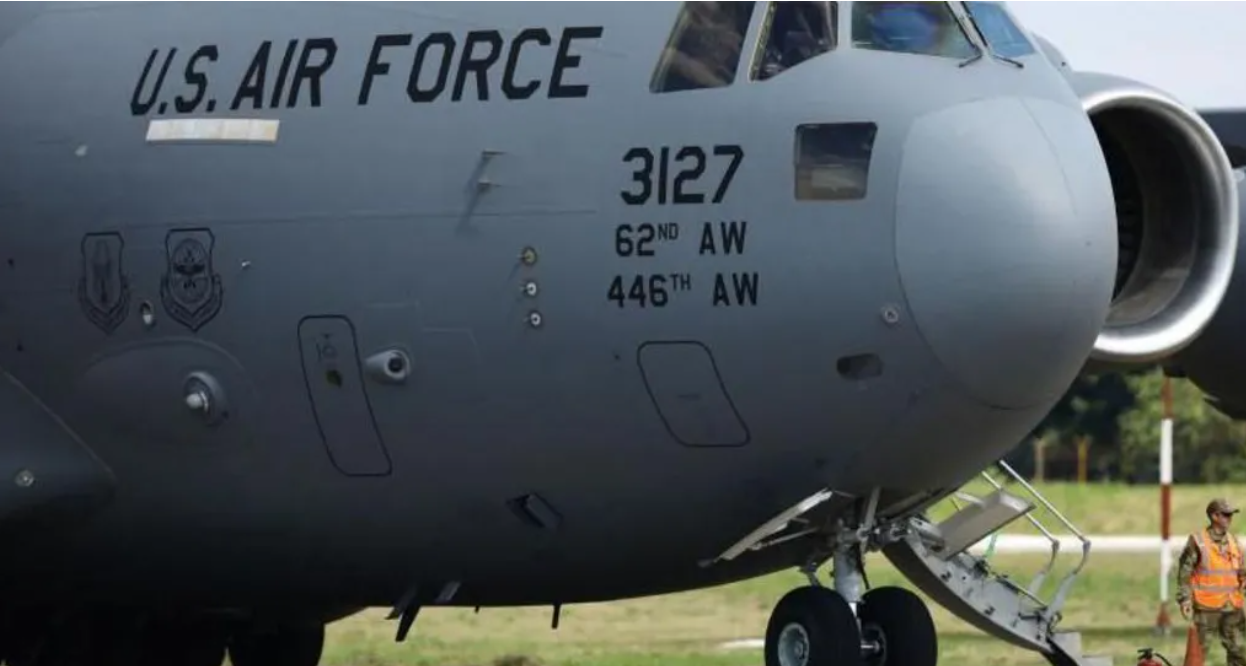
The US has deported 10 people to Eswatini despite rights groups in the southern African state mounting legal action to block the plan.
This is the second batch of deportees that the Trump administration has sent to Eswatini as part of its hard-line approach towards immigration.
The 10 have been "securely accommodated", and posed no threat to the public, Eswatini's prison department said in a statement.
Eswatini human rights lawyer Mzwandile Masuku told the BBC he was "shocked and dismayed" that the government had taken in the group, despite an ongoing court case against the arrival of five deportees in July.
The US had described the five - from Jamaica, Cuba, Laos, Vietnam and Yemen - as "depraved monsters".
The Jamaican has since been repatriated to his country of origin, while another two were expected to be repatriated soon, Eswatini's government says.
In a statement on Sunday, the government said it would take in 11 deportees following an agreement with the US "to cooperate in this manner".
It did not explain why only 10 had arrived.
Their names have not been made public.
The BBC reported in September that the Trump administration had told Kilmar Ábrego García, a Salvadoran man at the centre of a long-running immigration row, he could be deported to the southern African kingdom.
The administration alleges that he was a member of a transnational Salvadorian gang MS-13, which he denies.
He was mistakenly deported to El Salvador in March, and then returned to the US where he was detained and charged with human smuggling. He pleaded not guilty.
A US federal charge ruled on Friday that Mr Garcia's prosecution could be for "vindictive" reasons, and he would hear more evidence before reaching a final decision.
The BBC has asked Eswatini government acting spokesperson Thabile Mdluli whether or not he was among the latest group to be deported.
In an earlier statement, she said the deportees would be kept in a "secured area separate from the public, while arrangements are made for their return to their countries of origin".
Their arrival comes a day before a court case against the deportations is set to resume in the main city, Mbabane.
Mr Masuku, who represents civil society groups challenging the deal, said he would have expected the government to "respect the court process and await its ruling" before accepting more deportees.
In September, campaign group Human Rights Watch (HRW) said it had seen the agreement between the Eswatini and US governments.
It provides for Eswatini to accept up to 160 deportees in exchange for $5.1m (£3.79m) from the US to build its "border and migration management capacity", HRW said.
The Southern African Litigation Centre (SALC) - along with other civil society groups - argues that the government's decision amounts to "executive over-reach" and Eswatini's constitution states that such agreements should be reached with parliamentary consent, something that did not happen in this instance.
Activists also protested against the deal outside the US embassy when the first deportees arrived.
The civic groups say the deal is secretive and an example of "democratic regression", 20 years after Eswatini adopted a constitution to give more of a say to parliament in a country where the king has long wielded absolute power.
"We would have expected this milestone to reflect a maturation of our democracy - stronger rule of law, greater accountability, and clearer separation of powers," the SALC's Melusi Simelane told the BBC.
The government is defending the case, saying it acted within its powers and that the constitution makes allowances for it to reach such agreements with foreign governments.
Some Eswatini MPs had previously raised concerns about the deal in parliament, but Prime Minister Russell Dlamini said it had been handled at "top clearance level".
The deal also alarmed neighbouring South Africa, which expressed fears that the deportees could cross into the country via their porous border.
Ms Mdluli tried to allay the fears by saying the deportees were being held in solitary confinement in a secure facility.
Previously known as Swaziland, Eswatini is a small, landlocked country surrounded by South Africa and Mozambique. It has been led by King Mswati III since 1986.












